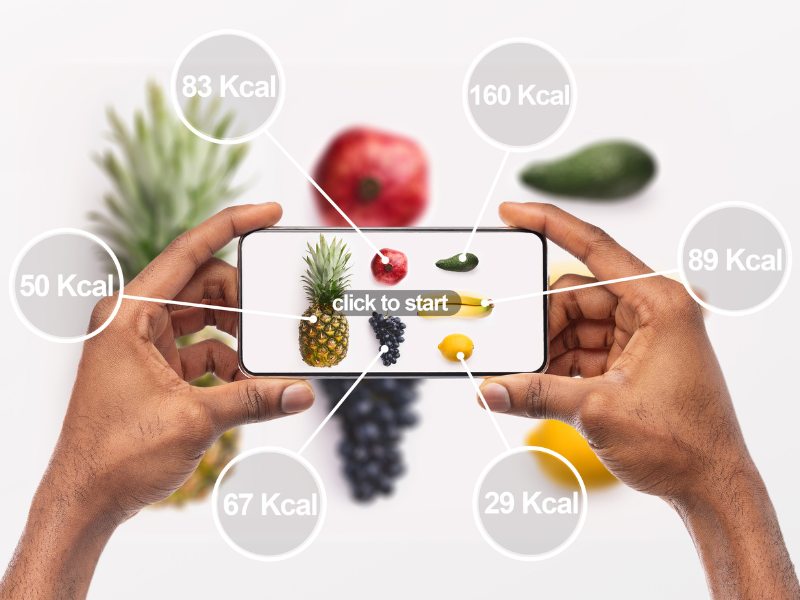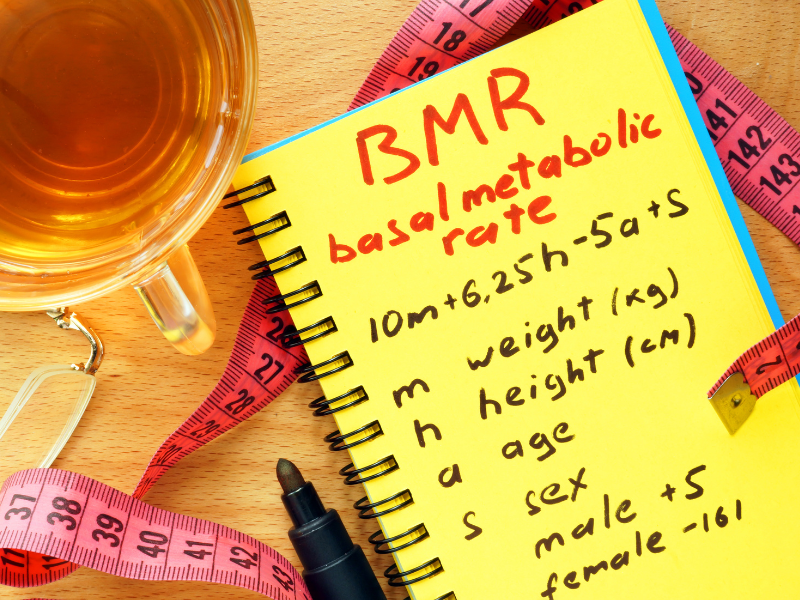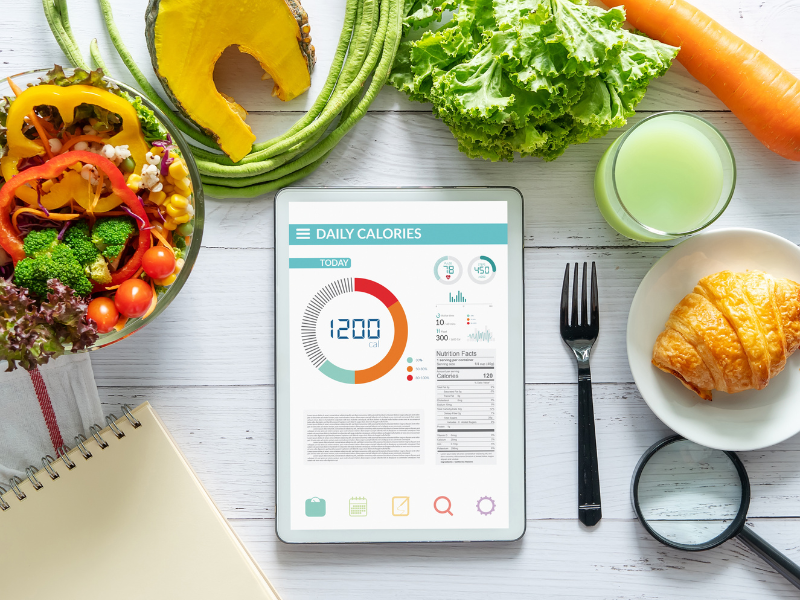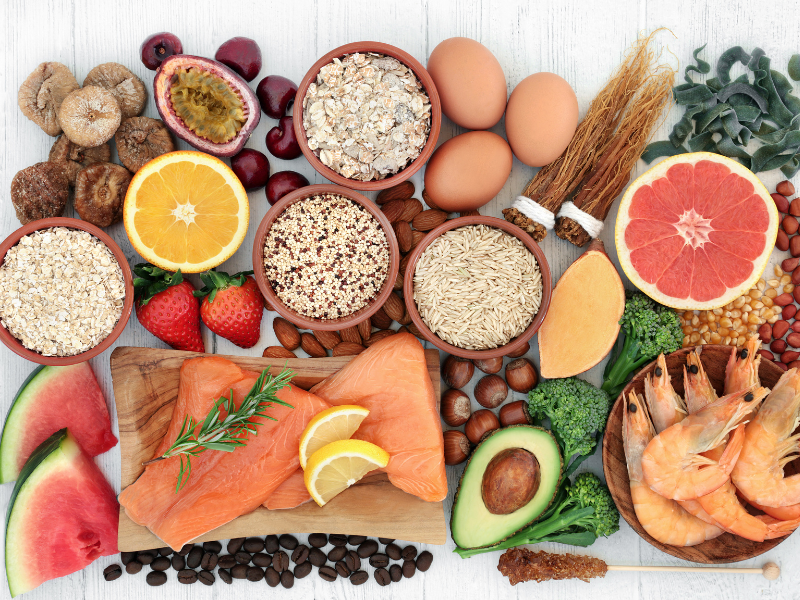


The key to meeting your fitness goals is to learn your magic number – how many calories do I need to burn each day? Every great transformation is built upon understanding the basics, so in this guide, we’ll walk you through the whys and hows of burning calories, needed to manage either weight loss or weight gain.
Understanding How Calorie Burning Works

The first myth to debunk is that calories are a mortal enemy that we should avoid. A calorie is a unit of heat energy, and understanding how the body burns calories is crucial for managing your weight.. Hence, we can use calories to measure how much energy we need to sustain our bodily functions. The exact equation depends on a union of several factors such as your gender, age, height, weight, activity level and lifestyle.
Ask yourself: How active am I on a weekly basis? How many calories do I burn at rest?
On the other hand, food contains calories, in varying amounts. As long as you burn more calories than you consume (known as a deficit), you will lose weight. There are 7700 calories in 1 kg of body fat [1]. In simpler terms, you need to have a calorie deficit of 7700 in order to lose 1 kg of weight.
How Many Calories Do You Burn a Day Without Trying?
Our bodies are engines that never stop churning. At any instant, we are constantly burning calories due to the basic functions of our gastrointestinal system. This is called the resting metabolic rate (RMR), which supports breathing, blood circulation, organ functions, and basic neurological functions [2]. On average, the RMR can range from 1600-2400 per day for men, and 1200-1800 per day for women [3].
Estimating Your Calorie Needs

Before doing any calculations blindly, you should first ask yourself if you wish to lose, gain, or maintain weight. If you consume more calories than you burn, it can lead to weight gain, which is why understanding your calorie needs is essential. Set your target weight and you can tabulate how many calories you can consume daily.
While the Resting Metabolic Rate (RMR) is a more accurate measure of daily calorie needs as it includes low intensity activities such as breathing, the Basal Metabolic Rate (BMR) measures your metabolism at a complete rest. Calorie calculators such as the Harris-Benedict formula combine your BMR and daily activity level to calculate how many calories you need to consume daily to maintain your weight [4][5]. Once you have this number, you will know how much more calories you need to burn/eat to create a deficit or surplus respectively.
How Many Calories Do You Consume in a Day?
This brings us to the aspect of the weight loss journey that can be stressful, but certainly doesn’t have to be. Counting calories can help you understand your dietary habits and create a calorie deficit for weight loss. What’s in the food we eat? A person’s caloric intake is made up of 3 main macronutrients: protein, fat, and carbohydrates. Fat is considered to be energy-dense as it contains 9 calories per gram, while protein and carbohydrates contain 4 calories per gram [6]. The more we learn about our food, the less stressful it can be to make the right choices.
You may also like: How Long Can You Go Without Food?
4 Tips For Managing Your Calories
The most difficult step is putting plans into action. Here are four tips that can help you make the right decisions for yourself.
1. Eating habits matter

Eating habits matter. Tracking your food intake allows you to understand which foods are more suitable for your diet. Practice portion control, especially when eating energy-dense foods. This helps you enjoy your favorite foods without derailing your fitness goals. Lastly, drink water regularly as it helps you feel fuller and less likely to overeat. Furthermore, it aids digestion, improves metabolism and prevents constipation [7]
2. Lift Weights

Weightlifting is a form of strength training that offers a different set of benefits compared to aerobic training. Lifting weights can lead to greater muscle breakdown, which allows the body to burn calories even after completing the exercise [8]. In the long run, weightlifting with a calorie surplus builds more muscles, thus increasing your BMR and burning more fat. If you are looking to lose weight, weightlifting with a calorie deficit allows you to retain your muscle mass while losing weight.
See also:
Kelly Clarkson Weight Loss Revealed: How She Did It
Janet Montgomery Weight Loss: Diet, Workout, Before and After
3. Choose the Right Foods For Your Goal

Foods vary in their energy density – number of calories in a specific amount of food – and this can be crucial depending on your goals. This density depends on the water, fiber, and fat content of the food [9]. If you wish to feel fuller on fewer calories, opt for low energy density foods such as vegetables and fruits as they have a higher water and fiber content. If you wish to meet your calories surplus without feeling too full, eat high energy density foods such as granola, avocado, oils (will link olive oil article when done), butter, nuts [10]
4. Exercises That Help You Burn More Calories

It is no surprise that running gives you the greatest calorie burn returns per minute. However, there are great options for you that can still increase the calories you burn significantly. High-intensity interval training (HIIT) is a great way of doing so. It involves short bursts of exercise at more than 70% of your aerobic capacity. Other effective (and fun) exercises include skipping, yoga, swimming, cycling and hiking [11]. Who says you can’t have fun while burning calories?
Use a BMI calculator
The Body Mass Index (BMI) is an index used to categorize one’s weight. While it has its limitations in assessing fitness and health, the data can be used to gauge if you are above or below the average weight for your height. Knowing this can be a useful strategy in determining your fitness goals.
You can check this out easily with JustFit’s BMI calculator.
Conclusion
We hope that this article gives you enough insight into the question “How many calories should I burn a day” and it can help you with framing your fitness goals accordingly. By understanding concepts like the BMI index, basal metabolic rate, daily calorie burn, and more, you come closer to managing weight loss and estimating the calories burned. To know more about weight loss tips and exercises that can help you maintain a healthy lifestyle and a fitter you, check out the JustFit app!
Is it enough to burn 500 calories a day?
How many calories should I burn in a day to lose weight?
Is losing 2 pounds a week healthy?
Where do you notice weight loss first?
Abreu, M. (2023, May 8). Harris-Benedict Equation Calculator for nutrition professionals. Nutrium Blog. Available at: https://nutrium.com/blog/harris-benedict-equation-calculator-for-nutrition-professionals/ Chakraborty, A. (2023, July 4). How many calories is 1 kg: Is losing 1kg a week healthy. Bodywise. Available at: https://bebodywise.com/blog/how-many-calories-is-1-kg/ Comana, F. (n.d.). Resting metabolic rate: How to calculate and improve yours. NASM. Available at: https://blog.nasm.org/nutrition/resting-metabolic-rate-how-to-calculate-and-improve-yours Department of Health & Human Services. (2001, August 1). Metabolism. Better Health Channel. Available at: https://www.betterhealth.vic.gov.au/health/conditionsandtreatments/metabolism D’Souza, G., & Meacham, J. (n.d.). Lifting weights vs. Cardio: Which Burns More Calories?. Medical News Today. Available at: https://www.medicalnewstoday.com/articles/323922#aerobic-vs-anaerobic Mayo Foundation for Medical Education and Research. (2024, January 12). The simple math that helps you feel full on fewer calories. Mayo Clinic. Available at: https://www.mayoclinic.org/healthy-lifestyle/weight-loss/in-depth/weight-loss/art-20044318 MediLexicon International. (n.d.). Calorie-dense foods: Needs, healthy options, and more. Medical News Today. Available at: https://www.medicalnewstoday.com/articles/calorie-dense-food#examples MediLexicon International. (n.d.-a). Calorie-dense foods: Needs, healthy options, and more. Medical News Today. Available at: https://www.medicalnewstoday.com/articles/calorie-dense-food#examples Parkway East Hospital. (2024, July 23). The importance of drinking water. PEH. Available at: https://www.parkwayeast.com.sg/health-plus/article/the-importance-of-drinking-water Winderal, A. (n.d.). What’s the difference between total calories and calories from fat? Available at: https://www.healthcentral.com/article/whats-difference-between-calories-calories-fat





